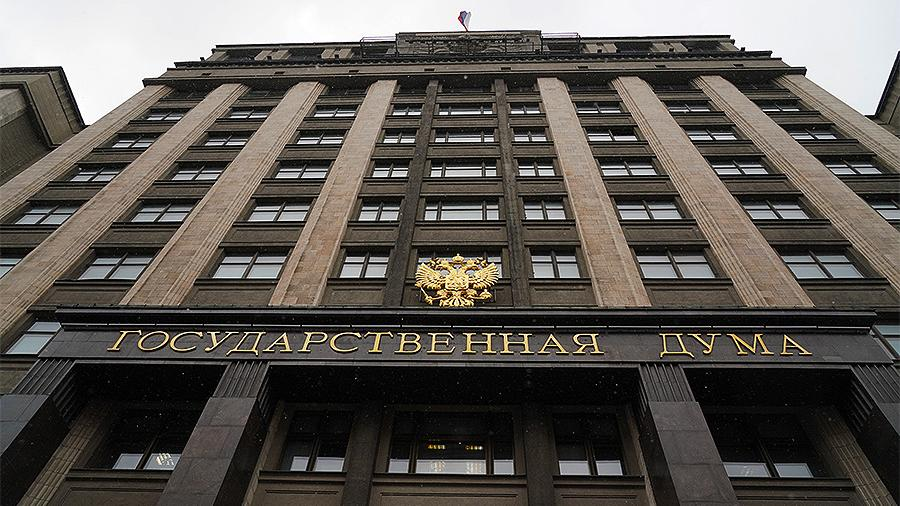Similar proposals have already sounded within the walls of the State Duma this spring, and now lawmakers have returned to the issue of forcing foreign Internet companies to comply with 152-FZ. For the application of such a measure, a court decision or an executive document will be sufficient.

First of all, the microblogging service Twitter, social networking site Facebook and tech giant Apple come under attack of the new initiative. It is these companies that have been ignoring both court orders and issued fines for non-compliance with 152-FZ "On Personal Data" for several years now.
According to Kommersant sources, the new bill is being prepared by a group of experts at the State Duma "headed by Alexander Zhuravlev, chairman of the commission on legal regulation of the digital economy of the Moscow branch of the Russian Lawyers Association."
Zhuravlev argues that the main goal of the bill is "to encourage foreign companies, including Facebook, Twitter and Apple, to open full-fledged representative offices in Russia and store data here."
In addition to the "stick", Mr. Zhuravlev also points out the possible "carrots" for the above-mentioned companies, primarily in terms of taxation:
« , , , , IT-, , 20%».
The authorities are moving to such radical measures, since there are no real instruments of influence now. Even if a foreign Internet company has an office or a representative office in the Russian Federation, global financial and other operations to conduct business in the country through it are not carried out, that is, it is not possible to collect fines or influence them in any other way.
Recall, in accordance with Federal Law No. 152 "On Personal Data", all Internet companies and services operating in the Russian Federation and receiving personal data from citizens of our country for processing undertake to store them on equipment located in Russia.
In addition, the owner of the equipment must be a company with no more than 20% foreign participation. Otherwise, a special permit must be obtained for her work. That is, in fact, the law forces foreign companies to transfer the storage of personal data of their users from the Russian Federation to a Russian outsourcing company.
We are not talking about too large amounts of data on the scale of the Russian Internet. None of the resources and services potentially falling under the first wave of restrictions are included in the top 50 sites according to Alexa . However, the main threat to the freedom of the Internet is not the restrictions on the availability of conditional Facebook or Twitter, but the opportunities that open up when such a system is implemented.
The main problem is that the Russian authorities will most likely be able to limit the network bandwidth in the right direction. Thus, the method of filtering Internet traffic up to the complete blocking of access to the external network for ordinary users has already been tested in neighboring Belarus after the presidential elections. Then the equipment of the American company Sandvine was used , the supplier of which was the Russian system integrator Jet Infosystems.

Why are traffic exchange points important, for example, the famous MSK-IX, created back in 1995? As the experience of neighbors shows, the installation of the filtering system is carried out exactly at the traffic exchange point, through which both internal exchange and contact with the outside world go. In the case of Belarus, Jet Infosystems installed and configured Sandvine equipment at NTSOT (National Traffic Exchange Center), a government agency that controls the only traffic exchange point in the country. Moreover, it took less than a month, taking into account the fact that the supplying companies had to carefully bypass the corresponding US sanctions. There are more such points in Russia, but still, the number of such nodes is far from prohibitive. According to open data, there are 51 IX-points in the Russian Federation; some of them are inactive, and some serve only the internal needs of the Russian Internet.
The Belarusian experience shows that such systems are not only capable of “filtering prohibited traffic,” as Sandvine assured of trying to justify themselves before the US Congress, but also turning the national segment of the Internet into Cheburnet, completely disrupting the network connectivity.
Even if the government uses these systems as intended by the developers, it will still lead to consequences for consumers: additional delays and packet loss will occur on IX-nodes due to the operation of the firewall. For the same inhabitants of Siberia, an increase in ping by another 20-30 ms in some cases may turn out to be critical. In addition, the use of such restrictive technologies will degrade the quality of the connection and reduce its stability in terms of packet transmission, especially during the evening prime time.
If Sandvine equipment or the like is installed in the Russian Federation, then no further sanctions will be effective: the systems are more than autonomous and able to exist without support from their developers. In addition, they are capable of not only “filtering”, but actually completely blocking the Internet, both in terms of communication with the outside world and within the country.
In terms of forcing companies, the chosen strategy can be successful - if the losses of the giants exceed the possible costs and collateral damage from compliance with 152-FZ. The new bill poses the greatest threat to Apple with its cloud-based music and TV services, which the company is currently actively promoting. Facebook will also suffer significantly if the subsidiary social network Instagram falls under the sanctions, and only then should we consider threats to Twitter, which is still dominated by text content. True, most of the citizens of the Russian Federation, most likely, will not notice the bandwidth limitations towards these services: if you analyze the Alexa data, then the Runet is very self-sufficient and is seriously focused on its internal services from the RU domain zone.
This bill carries the main threat in the future. If the equipment is installed and the experiment is successful, then government agencies will receive a working repressive tool against unwanted sites.